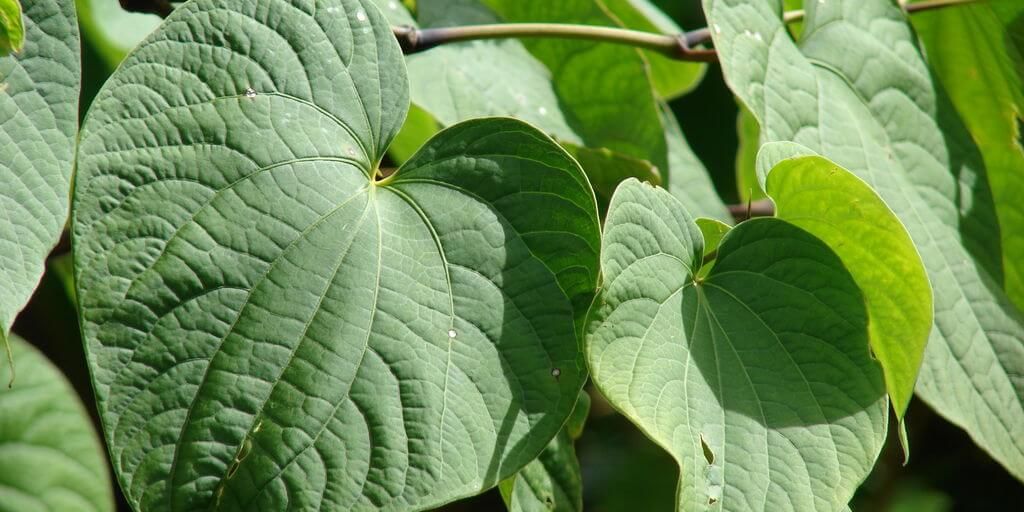Kava kava (Piper methysticum) is a shrubby plant containing substances that can soothe the anxious mind and body. Also known also as simply Kava, or ‘awa’, this plant is native to the South Pacific islands, particularly Fiji, Vanuatu, Tonga and Samoa. Whilst Kava is consumed in some South Pacific cultures as a traditional ceremonial or social beverage, it is not a staple food or a primary source of nutrition.
Traditional Uses of Kava Kava
The root of the Kava plant is traditionally used to prepare a beverage with sedative, anaesthetic and euphoric properties. Kava has been used for centuries by indigenous peoples in rituals, ceremonies and social gatherings.
Kava root is known for its calming and relaxing effects, often described as promoting a sense of tranquility, alleviating stress and anxiety, and inducing feelings of well-being. It is consumed primarily as a ceremonial drink in these cultures and is also used medicinally for its potential therapeutic benefits.
Active Ingredients in Kava Kava Root
Kava roots contains active compounds called kavalactones, which are believed to be responsible for its pharmacological effects. These compounds have been studied for their potential anxiolytic (anxiety-reducing), muscle-relaxing, and sedative properties.
Health Benefits of Kava Kava
Kava is primarily valued for its psychoactive and medicinal properties, such as its calming and sedative effects. It is not considered a significant source of calories, vitamins, minerals, or other essential nutrients required for sustenance. Instead, it is consumed for its potential relaxation and stress-relieving effects.
Kava kava for Anxiety and Insomnia
In addition to its traditional uses, Kava has gained popularity in other parts of the world as a natural remedy for anxiety, insomnia and stress.
Kava is well known for its ability to reduce symptoms of anxiety and stress. In a 6-week, double-blind trial with 75 participants, Kava was found to significantly reduce anxiety. Furthermore, Bartram’s Encyclopedia of Herbal Medicine describes Kava as a “powerful soporific for chronic insomnia” due to its calming effect.
Kava also eases other stress-induced symptoms such as muscle cramps and strains. Uterine cramps and backaches associated with a woman’s menstruation may also become more tolerable by using Kava.
Kava may be used as alternative to anxiety medication, but should not be used in conjunction with any other drugs.
Kava kava for the Menopause
Kava has been shown to lessen some of the menopause-related symptoms in women including anxiety, moodiness and even hot flashes. In a 2007 study of supplements for mood and anxiety in menopausal women, it concluded that Kava “holds promise for decreasing anxiety in peri-menopause and post-menopausal women”. However, it was noted that Kava should not be taken long-term and should be used with caution.
Kava Kava as a Topical Anaesthetic
People who consume raw Kava root report a sensation of tingling or numbness on their lips and tongue. These harmless sensations caused by the kavalactones in the root can act as a topical anaesthetic on minor superficial wounds and abrasions. It may also help relieve the pain of a toothache or sore throat.
How To Take Kava kava
People of the Pacific Islands are often described as some of the happiest and most social folks on the planet; perhaps this has something to do with the Kava root these people consume on a regular basis.
Once harvested, the root of the Kava plant is chewed directly or ground into a powder, mixed with a small amount of water or coconut milk, and quickly consumed. Macerating the root releases the kavalactones that produce feelings of well-being, relaxation and mental clarity.
Other ways Kava root can be taken is in the form of capsules, tinctures, extracts, pastes and teas. There are even foods made with Kava root, such as chocolates, snack chips and smoothies.
Kava Kava Recommended Dose
Recommended dosages for Kava root vary widely. Most of the commercially prepared Kava root supplements have 30 to 70mg of kavalactones per serving.
Since it is the kavalactones that provide the therapeutic benefits of the plant, users of Kava should ensure that the product they choose is dosed based on kavalactone content, not just the total Kava root itself. Always consult your doctor before consuming any herbal supplement or new medication.
Shopping
| Visit the new SHOPPING page for a wide selection of great products! |
Always take care when taking herbs and Read Our Disclaimer.
Kava Kava Herb Notes / Side Effects
Use Kava cautiously and under the guidance of a qualified healthcare professional due to potential risks and side effects, particularly with long-term or excessive use.
Kava Kava Liver Health and Associated Risks
There have been some concerns about the safety of Kava root, particularly its role in causing liver toxicity. Some people who have consumed Kava developed liver damage but the reason is unclear. What seems to be generally agreed upon is that if one is to consume Kava, the person should ensure it is a standardized preparation made only from the Kava root, and not to ingest high quantities over a long period of time.
Because of the mild euphoric feeling that Kava can induce, it is sometimes considered to be potentially addictive. No studies have confirmed this theory, however, in spite of the fact that Kava affects the body and mind in ways similar to how anti-anxiety drugs like benzodiazepines do.
References:
KAVA. NATIONAL CENTER FOR COMPLEMENTARY AND ALTERNATIVE MEDICINE (NCCAM). ACCESSED AT WWW.NCCAM.NIH.GOV ON JANUARY 14, 2014.
KAVA. NATURAL MEDICINES COMPREHENSIVE DATABASE. ACCESSED AT WWW.NATURALDATABASE.THERAPEUTICRESEARCH.COM ON JANUARY 14, 2014.
MURRAY, M., & PIZZORNO, J. (1998). ENCYCLOPEDIA OF NATURAL MEDICINE (REVISED 2ND ED.). ROCKLIN, CA: PRIMA PUBLISHING
OLSEN, L.R., GRILLO, M.P., & SKONBERG, C.(2011). CONSTITUENTS IN KAVA EXTRACTS POTENTIALLY INVOLVED IN HEPATOTOXICITY: A REVIEW [ABSTRACT]. CHEMICAL RESEARCH IN TOXICOLOGY, 24(7), PP 992-1002. DOI:10.1021/TX100412M


Leave a Reply